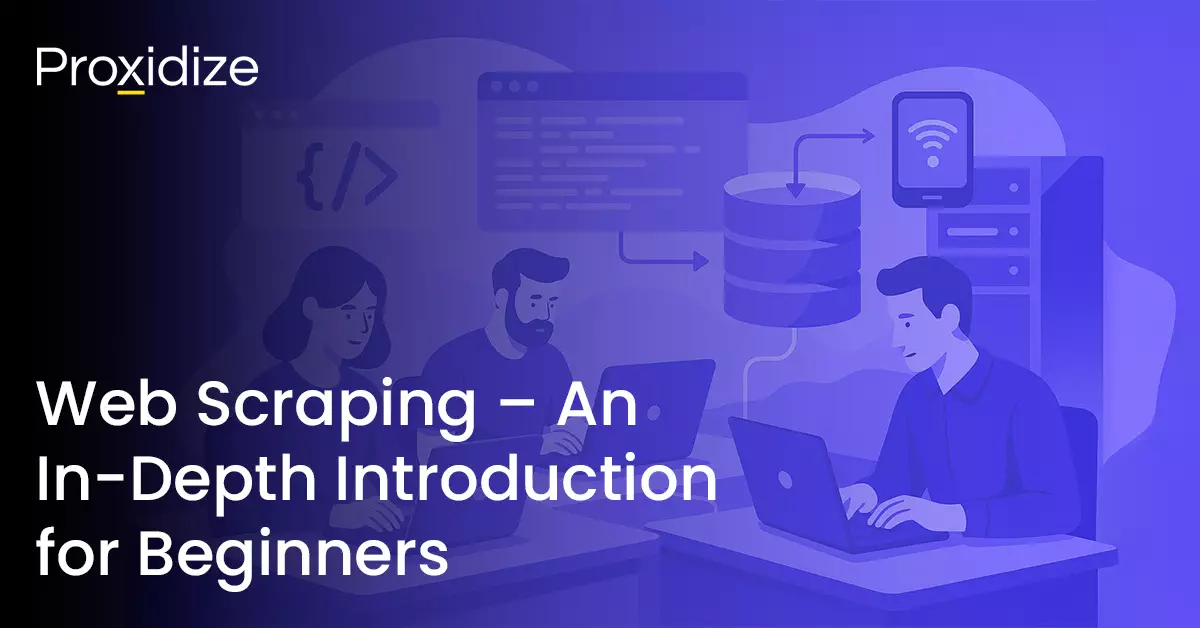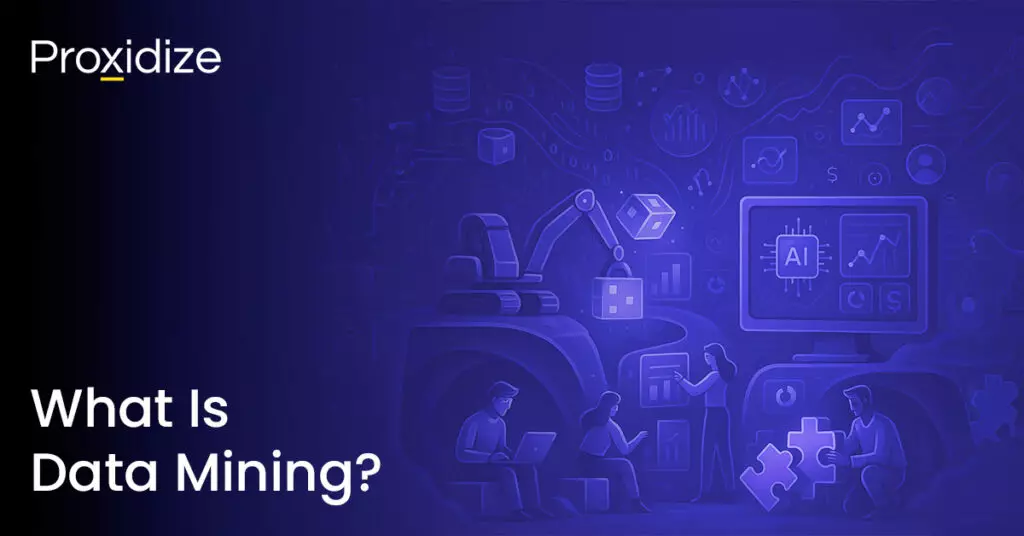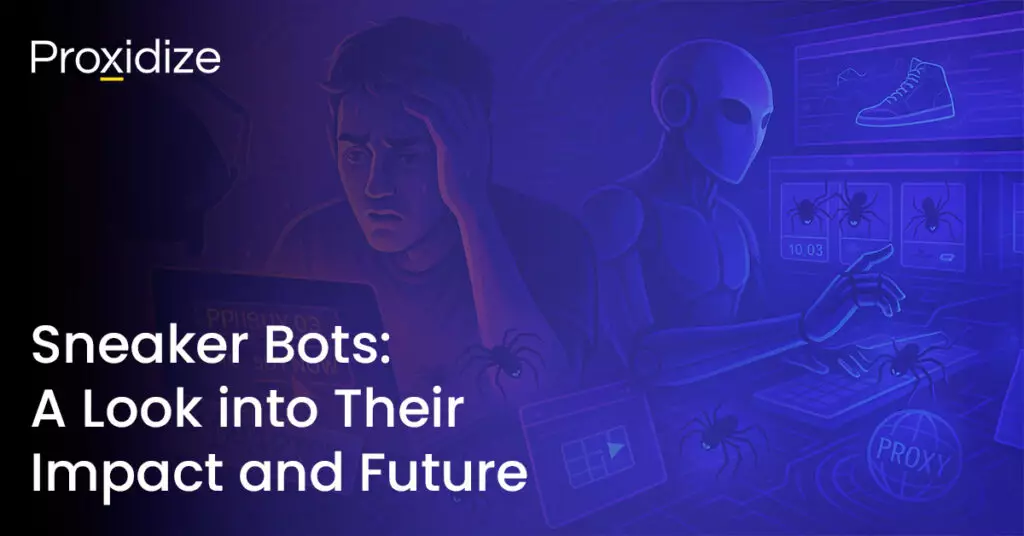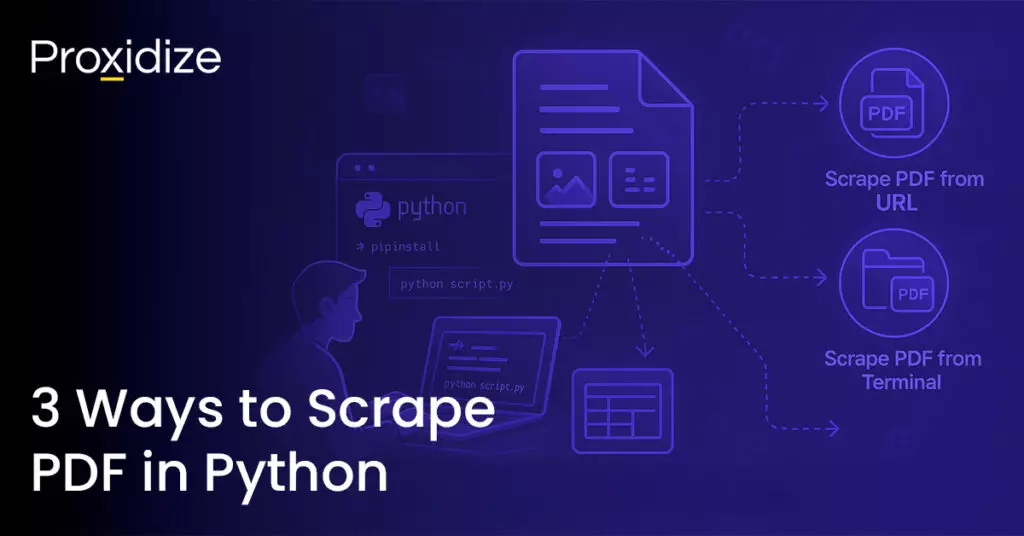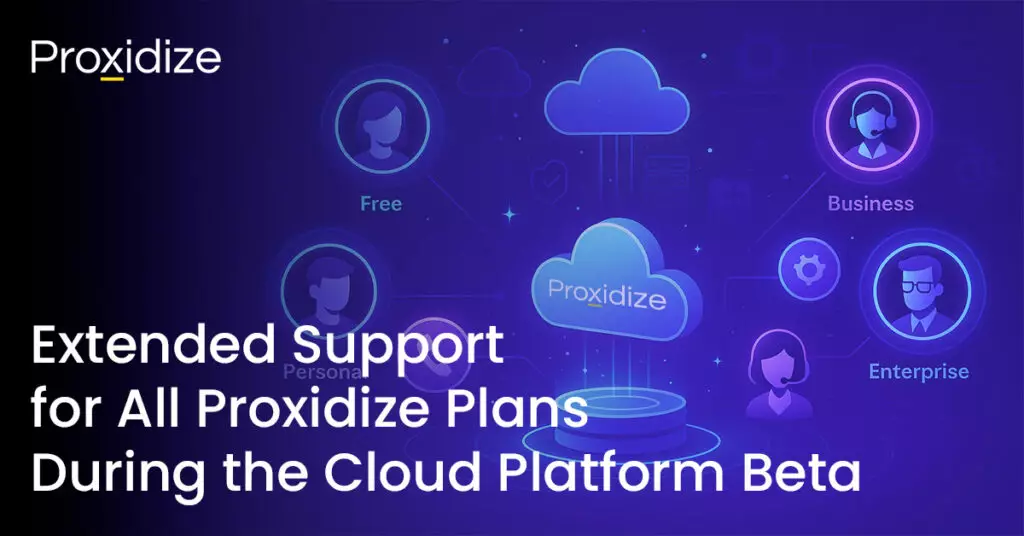Companies, researchers, and individuals are constantly seeking ways to gather valuable information from the vast expanse of the internet. Web scraping has emerged as a powerful technique, allowing users to extract data from websites and use it for various purposes.
When it comes to web scraping, using mobile proxies can provide a unique advantage. Mobile proxies act as intermediaries between your device and the website you are scraping, allowing you to access data without revealing your true identity.
In this article, we will delve into the world of web scraping with mobile proxies, exploring what it is, when it is useful, and how it works. So, if you’re curious about harnessing the power of web scraping with mobile proxies, keep reading to gain a deeper understanding.
What Is Web Scraping?
Web scraping, known as the most common use case of mobile proxies, is a powerful technique for the collection of online data, allowing businesses and individuals to quickly acquire the information they need from websites. It’s the process of automatically extracting data from websites, using specialized software or programming scripts to access and retrieve information from web pages, parse the data into a structured format, and then store it for later use.
Web scraping is often performed using programming languages like Python and specialized libraries or frameworks, allowing developers to create scripts or bots that navigate websites and collect data for various purposes, such as data analysis, research, content aggregation, and more.
What Does Parsing Mean In Web Scraping?
The term “parsing” can be found in many different contexts. In web scraping specifically, “parsing” refers to the process of extracting specific information from the raw HTML or XML code of a webpage. It does so by receiving the page as raw text. Then it analyzes it as text, images, links, or tables based on the HTML or XML structure.
To achieve parsing, developers often use libraries in programming languages like Python (Beautiful Soup), JavaScript (Cheerio), or other tools specifically designed for parsing HTML or XML documents. These tools help web scrapers navigate an HTML document’s complex structure and navigate its elements using tags, classes, or IDs to extract the desired data.
Why Use Mobile Proxies in Web Scraping?
If you ask any tech enthusiast what mobile proxy solutions are used for, they’ll most likely cite web scraping as the primary use case. And it’s no wonder why. Mobile proxies provide an efficient and effective way to securely scrape data from websites. But what exactly are mobile proxies?
A mobile proxy is a type of proxy server with a 3G, 4G, or 5G cellular connection, acting as an intermediary between your device and web servers. Thus creating a secure internet connection. It works by intercepting the traffic going out of and into your device and routing it through cellular towers.
By doing so, your device’s IP address will be replaced by a mobile IP address typically associated with a mobile carrier. This technique of routing traffic is extremely beneficial to web scrapers, and here’s why:
- Overcoming Scraping Detection: By using mobile proxies, you can make your scraping activities appear more like legitimate mobile browsing, reducing the likelihood of triggering anti-scraping measures on websites.
- Avoiding Captchas: Websites often present captchas to identify and block scraping activities. Mobile proxies can help reduce the frequency of encountering captchas, saving time and resources.
- Access to Mobile-Only Content: Some websites have content or features exclusively accessible through mobile devices. Mobile proxies allow you to access this mobile-only content.
- Improved Data Accuracy: Mobile proxies can help ensure that the data you scrape accurately reflects what a real mobile user would see. This is particularly important for web scraping tasks that involve mobile-responsive websites.
- Avoiding IP Blocks: Mobile IP addresses are less likely to be blocked compared to datacenter or traditional residential IPs. This means you can scrape data more reliably without encountering frequent IP bans.
- Range of IPs: You can distribute your scraping requests across multiple IP addresses, making it harder for websites to track and block your activities.
The significance of mobile proxies in web scraping cannot be overstated. They offer a range of benefits that streamline and fortify the scraping process, making it more secure, efficient, and accurate. Now that we know the importance of utilizing mobile proxy networks in your scraping adventures, let’s examine the use cases of web scraping with mobile proxies and how it can be beneficial to your business operations.
Are Web Scraping and Data Mining the Same?
Web scraping and data mining are often used interchangeably, but they are not the same thing. While both involve extracting data from websites, they have different purposes and techniques.
Web scraping refers to the process of extracting specific data from websites. It involves using automated tools or software to scrape data from web pages and save it in a structured format for further analysis. Web scraping is commonly used for gathering data such as prices, product information, customer reviews, or any other data that is publicly available on websites.
On the other hand, data mining is a broader term that involves extracting knowledge or patterns from large datasets. It is a process of analyzing and discovering insights from data to make informed decisions. Data mining techniques can include statistical analysis, machine learning algorithms, and other methods to uncover patterns, correlations, and trends in the data.
While web scraping focuses on extracting data from websites and can be seen as part of data mining, data mining goes beyond that. It involves analyzing and interpreting the extracted data to gain meaningful insights. And can be applied to various domains, including business, healthcare, finance, and more.
Web Scraping vs. Web Crawling: What’s the Difference?
Web scraping and web crawling are two distinct but related processes used to gather information from websites. Web crawling, often performed by search engines like Google, involves systematically navigating through the web by following links from one web page to another. Its primary goal is to index web pages to create a searchable database. Web crawlers typically retrieve information from a wide range of websites, collecting data on webpage structure, metadata, and links.
In contrast, web scraping is a more targeted and specific process. It focuses on extracting particular data elements from web pages, such as product prices, news headlines, or contact details, and then saving that data for analysis or other purposes.
While web crawling operates on a large scale and is more about indexing and discovery, web scraping is about data extraction and information retrieval from individual web pages. Both processes have their uses, with web crawling being more about exploration and indexing, and web scraping being about data extraction and retrieval.
Is Web Scraping Legal?
One of the most common concerns when it comes to web scraping is its legality. The question of whether it’s legal or not may vary depending on various factors.
In general, web scraping is considered legal if done responsibly and within certain limits. The legality of web scraping depends on factors such as the website’s terms of service, the type of data being scraped, and the jurisdiction in which the scraping is taking place.
Websites often have terms of service or terms of use that outline whether web scraping is permitted or prohibited. Some websites explicitly prohibit scraping in their terms of service, while others may allow it under certain conditions. It is crucial to review and comply with these terms to avoid any legal issues.
Another important factor to consider is the type of data being scraped. If the data being extracted is publicly available and does not require any authentication or access to restricted areas of a website, it is generally considered more legally acceptable to scrape that data. However, scraping sensitive or private information, such as personal data or copyrighted content, can raise legal concerns.
Additionally, it is crucial to ensure that web scraping activities do not violate any intellectual property rights, such as copyright or patent laws. Using scraped data for commercial purposes without proper authorization or attribution can lead to legal consequences.
In Conclusion
In conclusion, web scraping is a valuable tool for extracting data from websites and can be used for a variety of purposes, such as market research, data analysis, and content aggregation. It allows users to gather large amounts of data quickly and efficiently, saving time and effort.
While there are ethical considerations to keep in mind, as long as web scraping is done responsibly and in compliance with the website’s terms of service, it can be a powerful tool for obtaining valuable information. Whether you are a business owner, researcher, or data enthusiast, understanding web scraping can provide you with a competitive edge and valuable insights.


